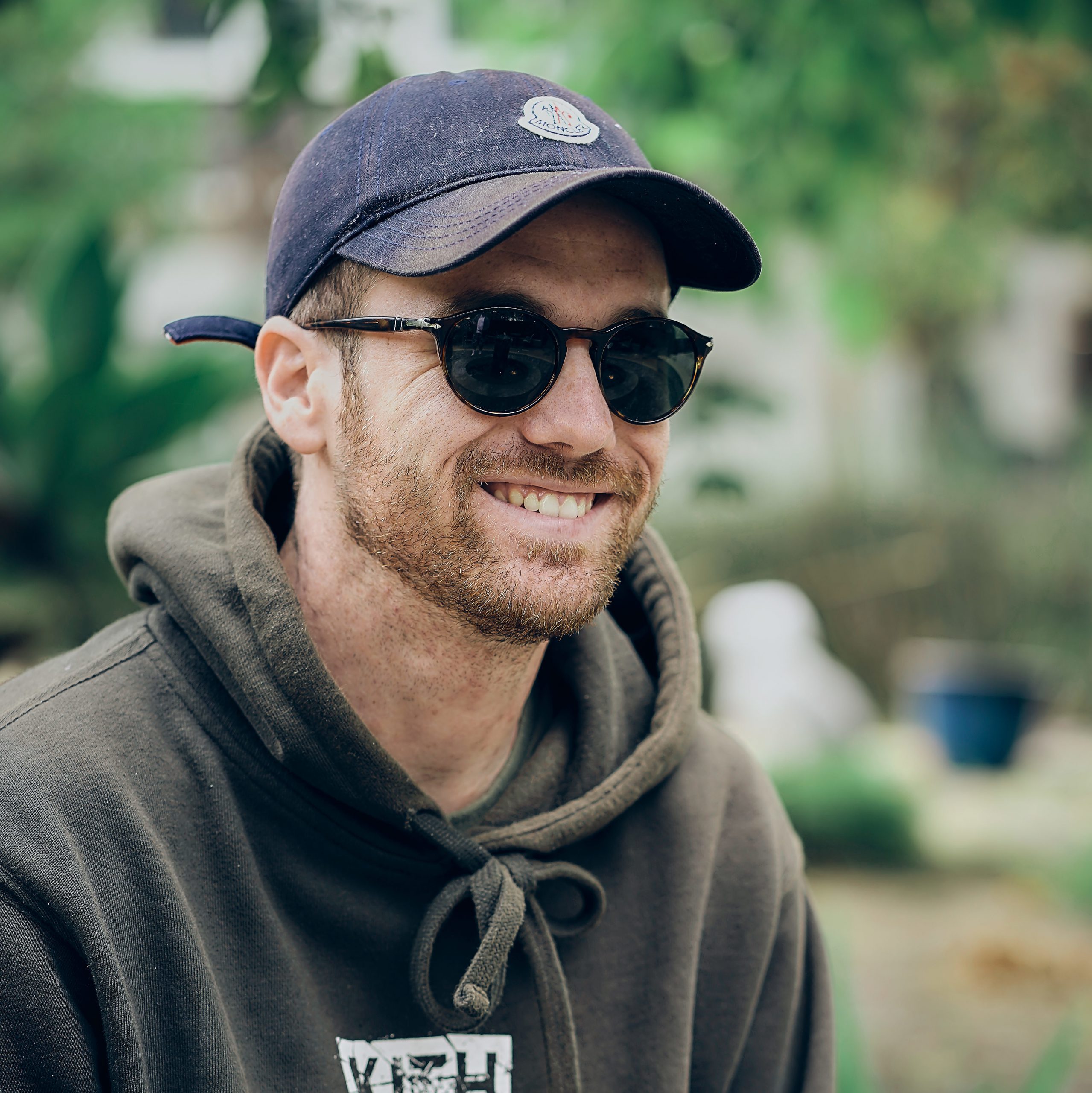[vc_single_image source=”featured_image” img_size=”full”]
It all started spiraling down when he left his idyllic hometown of Westlake Village, CA to attend Williams College in the similarly idyllic Williamstown, Massachusetts. He joined the school’s Division III football team as a freshman kicker, and the senior kicker on the team introduced him to drugs. A lot of drugs: ketamine, mescaline, amphetamine, LSD. “I remember being jacked up on Adderall, pacing the sidelines. A kicker should stay calm; keep their heart rate down, but…”
If you played in the recent BTS Crush the Crisis Open, you heard this young man provide some introductory remarks before Rabbi Mark took the stage. He was composed, confident, sincere, straightforward, and grateful. His name is Bobby Webster, a former resident of Beit T’Shuvah, and he’ll have two years sober this August. And if you read last week’s Spotlight on Julie Webster, this is the same Bobby Webster, her son.
Growing up, Bobby recalls that his father, who has 30 years clean, pressured him to not to go down the road of hard partying. “I got straight A’s and was a good kid, but the more my dad talked to me about pot or booze, the more I wanted to not be like him. I started to rebel,” he explains.
Bobby’s relationship with BTS had started before he went to college, when he began seeing Doug Rosen for therapy. Bobby says Doug, who directs the youth program, Partners in Prevention, at BTS, “saw right through me.” Doug recognized straight away that Bobby’s problems centered on his addiction. Doug’s recommendation: Beit T’Shuvah.
The summer before, Bobby recalls living at home, not showering, his mom sliding his meals under his locked bedroom door. He’d climb in and out of his window like a thief in the night to smoke pot—tons of it. A prisoner of his own making, he cut himself off from the world.
Self-imposed isolation, surrounded by those who love us the most: this is addiction.
Finally, Bobby hit his bottom. He took Doug’s advice and checked himself into Beit T’Shuvah. He remembers walking to the car; he hadn’t spoken to his dad for over a month. He recalls that his dad “was standing there sobbing, holding a letter. I just grabbed the letter and walked right past him.”
Scared and confused, in rehab for the first time, Bobby curled into bed and pulled out the letter: “I remember reading it that night and bawling. And that moment, that was my surrender. And everything just … phew. That was it. Let’s just do it. I called my dad a few days later.”
Reflecting on BTS, what it’s given him, Bobby says, “I’m so grateful and appreciative of where I am today, where we are today as a family, and none of that would have been possible without this place. Today, I’m so grateful to be alive. I love myself today.”
Currently, Bobby works with Doug Rosen and Jessica Fischel in the BTS Prevention Program. He’ll be heading back to school in the fall at either Williams or USC Marshall. He plans to get an MA afterward. Bobby used to want to go to school to make money; now it’s to help people. Bobby loves photography, cinematography, fashion, and branding.
Bobby, on his Crush the Crisis speech: “It was an honor to speak about my journey. I got a little nervous, but if I can help one kid, or show parents that Beit T’Shuvah can and does saves lives, then it gives my journey a purpose and I’m grateful for it,” he explains.
Bobby continues, with a wry smile: “It’s funny to think back on it now, but the harder I tried to not be like my dad, quicker I became more like him and I couldn’t be happier about that.”
Oh, and when it comes to golf, Bobby wanted to make one thing clear: “My mom kicks everybody’s ass. Including mine.”
